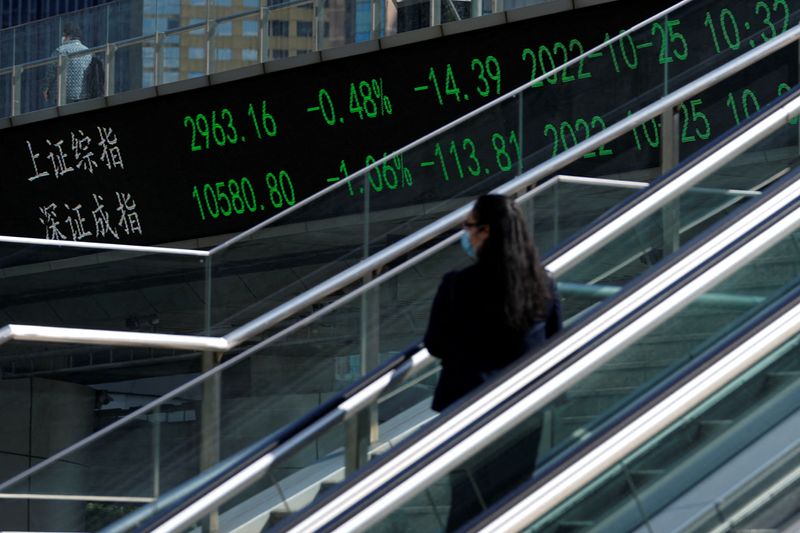BEIJING (Reuters) - China halved the stamp duty on stock trading effective Monday in the latest attempt to boost the struggling market as a recovery sputters in the world's second-biggest economy.
The finance ministry said in a brief statement on Sunday it was reducing the 0.1% duty on stock trades "in order to invigorate the capital market and boost investor confidence".
Reuters reported on Friday that the authorities were planning to cut the duty by up to half after a key share index fell to nine-month lows.
"Such a policy will likely give a short-term boost to the market but won't have much effect over the long run," Xie Chen, a fund manager at Shanghai Jianwen Investment Management Co, said before the announcement. "The rebound could last for just two to three days, or even shorter."
China's leaders vowed late last month to reinvigorate the stock market, also the world's second-largest, which has been reeling as the post-pandemic recovery flags and a debt crisis in the property market deepens.
Beijing has taken a series of measures, including a smaller-than-expected cut in a key lending benchmark last week. But investors are demanding a stronger policy response including massive government spending.

In the latest sign of economic weakness, data on Sunday showed profits at China's industrial firms extended this year's slump to a seventh month, with weak demand squeezing companies.
Regulators including the Ministry of Finance, under the guidance of the State Council, submitted a draft proposal for the cut in the stamp duty to the cabinet this month, people with knowledge of the matter have told Reuters.